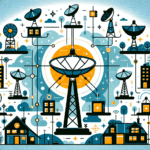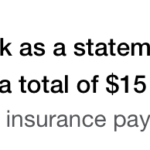Cord-Cutting Accelerated in 2019 – Are You Close to Moving On from Traditional Cable and Satellite Service?
According to a recent article in The Wall Street Journal, cord-cutting accelerated in 2019 as customers moved on from traditional pay-TV options.
Cord-cutting, itself, is not so surprising, we’ve been witnessing a move toward streaming entertainment instead of the traditional cable and satellite subscription packages for a number of years now.
What is, somewhat, surprising, however, is the response cable companies have toward the customer base and their defection to the newer, less costly, entertainment options.
Basically, cable companies are saying…good riddance.
According to the article, “Cable companies have made peace with the idea of customers leaving if they want to,” said Craig Moffett, an analyst at MoffettNathanson. “The companies will accept programming price increases and pass it onto consumers, accelerating the downward spiral of pay-TV.”
Which means forget cable companies providing incentives to keep pay-TV customers.
Their thinking goes somewhat like this: If you don’t like the typical 3-5% annual cable-TV price increases then move on.
Cord-Cutting Accelerates
And that’s just what many pay-TV subscribers did in 2019.
The Journal article notes that large cable and satellite companies lost approximately 5.5 million subscribers in 2019, an increase from the 3.2 million that were lost in 2018.
The 2019 subscriber loses tallied approximately 1 million total for Comcast Corp., Charter Communications and Altice USA Inc., while Dish Network was down roughly 500,000 and AT&T’s DirecTV and fiber-optic TV arm dropped 3.4 million subscribers.
The Result
The problem facing pay-TV companies is that costs continue to rise, but revenue is lost as subscribers balk at paying higher monthly bills.
Subscriber losses exacerbate the problem which puts many pay-TV companies in something akin to a death spiral.
They need to increase prices to subscribers to not only cover the increased programming expenses, but to make up for the revenue losses as a result of cord-cutters leaving the service.
The more subscribers head for the doors, the more cable and satellite companies need to increase prices. And around and around the process goes until a tipping point is hit.
Cable companies, as opposed to satellite companies, Dish and DirecTV, have a buffer of sorts.
Most cable companies also provide broadband service, a product which arguably could be considered a necessity in today’s society.
And, even though the cable companies will lose customers from the pay-TV side, many will remain with the cable companies as a result of broadband subscriptions.
Satellite companies don’t have that alternative.
A Bright Light for Satellite Subscribers?
So it will be interesting to see if satellite companies eschew the hard-line stand cable companies are taking with subscribers looking for a lower bill.
Once a subscriber is gone from a satellite company, so too is the revenue, there is no other broadband, or broadband-like option to keep a subscriber’s dollars attached to the company.
Which may bode well for satellite customers who want to be reasonable – the company makes a little, while the customer saves a little – when it comes to their monthly bill.
We’ll see.
Some experts say it’s only a matter of time before the satellite companies go out of business completely. Which would make trying to lower your DirecTV bill a moot issue.
It’s a Streaming World
The reality is, streaming is going to be the norm for more and more individuals as the entertainment landscape progresses.
And with the advent of 5G technology over the next decade, who knows what “TV” and entertainment will look like.
But that’s a few years off.
The question for right now is, are you ready to move on from traditional cable and satellite services?
Let us know your thoughts in the comment section below.



